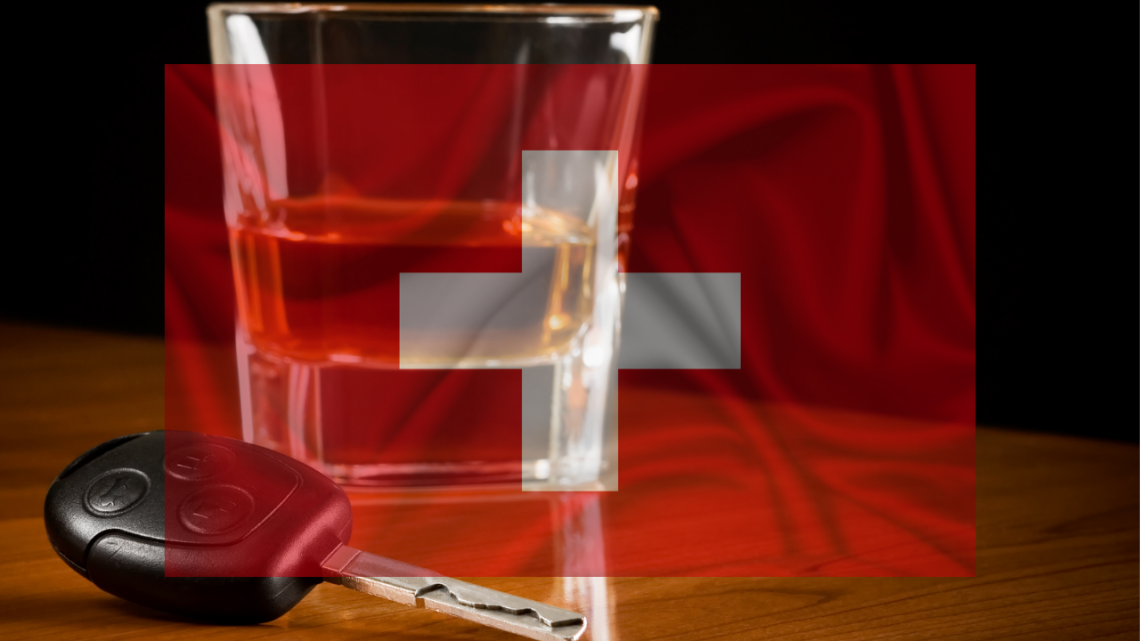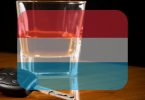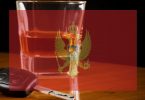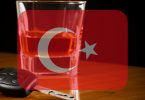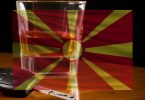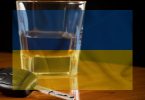In Switzerland, operating a vehicle with a blood alcohol concentration (BAC) exceeding the legal limit of 0.05% (or 50 milligrams of alcohol per 100 milliliters of blood) may lead to legal penalties and further repercussions.
This article intends to provide information and spread knowledge and awareness about the dangers of drunk driving in Switzerland. It’s crucial to emphasize that this website neither endorses nor condones drunk driving under any conditions or circumstances.
What is the legal alcohol limit for driving in Switzerland?
In Switzerland, the regulations surrounding alcohol consumption for drivers are strict and clearly defined. The legal alcohol limit for driving varies based on the category of the driver to ensure road safety for everyone. Here’s a breakdown of the permissible blood alcohol concentration (BAC) levels for different driver categories:
- Regular Drivers: A maximum BAC of 0.05% is allowed, which is equivalent to 50 milligrams of alcohol per 100 milliliters of blood.
- Professional Drivers: These include individuals driving commercial vehicles, buses, or taxis. They are subject to a zero alcohol policy, meaning they are not permitted to consume any alcohol while driving.
- New Drivers (Probationary Driving Licences): Drivers with a probationary license are also required to adhere to a zero alcohol limit to promote safe driving habits from the start.
- Learner Drivers: Individuals learning to drive must not have any alcohol in their system during driving lessons or tests.
- Driving Instructors and Persons Accompanying Learner Drivers: To ensure a safe learning environment, both instructors and any accompanying individuals must not consume alcohol, adhering to the zero tolerance policy.
These measures are in place to enhance road safety and reduce the risk of accidents related to alcohol consumption.
Drink and Drive Penalties and Punishments in Switzerland
Switzerland enforces strict penalties for drink-driving, aimed at discouraging this dangerous behavior and ensuring the safety of all road users. The consequences for driving under the influence of alcohol can be severe, involving fines, disqualification, and even imprisonment, depending on the blood alcohol concentration (BAC) at the time of the offense. It’s crucial for drivers to understand these penalties and to regularly consult the official state’s website for the most up-to-date information.
Fines, Penalties, and Disqualification
The Swiss legal system categorizes drink-driving offenses based on the driver’s BAC level, distinguishing between unqualified and qualified intoxication, and further dividing offenses into minor, moderate, and severe categories. Here’s what drivers need to know:
- Unqualified Intoxication: This corresponds to a BAC of 0.5 to 0.79g/l.
- Qualified Intoxication: This refers to a BAC of at least 0.8g/l.
Penalties are as follows:
Minor Offenses
- Driving with a BAC between 0.50 and 0.79g/l (or for novice and professional drivers with a BAC between 0.10 and 0.79g/l without committing any other offense):
- A warning and a fine of around CHF 600-800 if no previous offenses have occurred in the last two years.
- One-month license withdrawal if there has been a previous offense or administrative measure within the last two years.
Moderate Offenses
- Driving with a BAC between 0.50 and 0.79g/l (or for novice and professional drivers with the same BAC levels) while committing another offense:
- License withdrawal for at least one month, with the duration increasing based on the number and severity of previous offenses.
- Treated under criminal law as a minor offense and punished with a fine.
Severe Offenses
- Driving with a BAC of at least 0.8g/l:
- License withdrawal for at least three months, with the duration increasing for repeat offenses.
- Custodial sentence of up to three years or a financial penalty for severe offenses, with fines typically running into four figures.
Additional Measures and Costs
In addition to fines and disqualifications, individuals caught drink-driving will face procedural costs, fees for bureaucracy, and costs for blood alcohol analysis, which can exceed the fine itself. For BAC levels over 0.16%, a compulsory driving aptitude test is required to assess potential alcohol addiction, with the necessity to prove abstinence before the driving license can be reinstated.
Repeated Offenses and Probationary Licenses
The “cascade model” applies to repeated drink-driving offenses, leading to potential license withdrawal and mandatory assessments of fitness to drive. For probationary license holders, a first offense extends the probationary period by one year, while a second offense leads to revocation.
Staying Informed
Given the complexity and severity of the penalties for drink-driving in Switzerland, drivers are strongly encouraged to stay informed by regularly checking the official state’s website for updates and details on drink and drive penalties and punishments. This proactive approach can help drivers avoid the severe consequences of drink-driving and contribute to safer roads for everyone.
How can I calculate if my alcohol blood limit is legal in Switzerland
In Switzerland, the enforcement of drink-driving laws is stringent, with the police actively working to ensure that drivers comply with the legal blood alcohol concentration (BAC) limits. The primary method used by law enforcement to determine a driver’s BAC is through breathalyzer tests, which offer an immediate measure of alcohol levels in the breath, reflecting the concentration of alcohol in the blood. These tests are a crucial tool in identifying individuals driving under the influence and helping to maintain road safety.
As an experienced phlebologist with a decade of expertise, I recommend two reliable methods for individuals to assess their BAC levels, aiding them in making informed decisions about their ability to drive legally and safely in Switzerland:
- Use a High-Quality Alcohol Breathalyzer: For personal assessment, the BACtrack S80 stands out as an exceptionally accurate breathalyzer, which is widely available in Switzerland. This device is notable for its professional-grade accuracy and is both DOT & NHTSA approved and FDA 510(k) cleared. I strongly advise keeping one of these devices in your vehicle. It can be an invaluable tool for self-assessment, particularly given that individuals often misjudge their own level of impairment. The BACtrack S80 can provide a reliable estimation of your BAC, helping you to avoid the risks associated with impaired driving.
- Utilize a BAC Calculator: Together with fellow phlebologists and web developers, I have developed an online BAC calculator designed to estimate your alcohol levels based on various inputs such as the quantity of alcohol consumed, your weight, and the time elapsed since drinking. This tool is intended to provide a convenient and accessible means for individuals to gauge their BAC, offering guidance on whether it is safe and legal to drive.
It’s important to note, however, that while both of these methods can offer valuable insights into your BAC levels, they do not guarantee 100% accuracy. Factors such as individual metabolism, the type of alcohol consumed, and specific health conditions can influence BAC readings. Therefore, these tools should be used as guidelines to assist in making safer driving decisions, not as definitive measures of legal impairment.
By employing either of these approaches, you can better understand your BAC level and make more informed choices about driving. Remember, the goal is to prevent drunk driving and ensure the safety of all road users. Always err on the side of caution and consider alternative transportation options if there is any doubt about your sobriety.
Ways to Avoid Driving with a High BAC in Switzerland
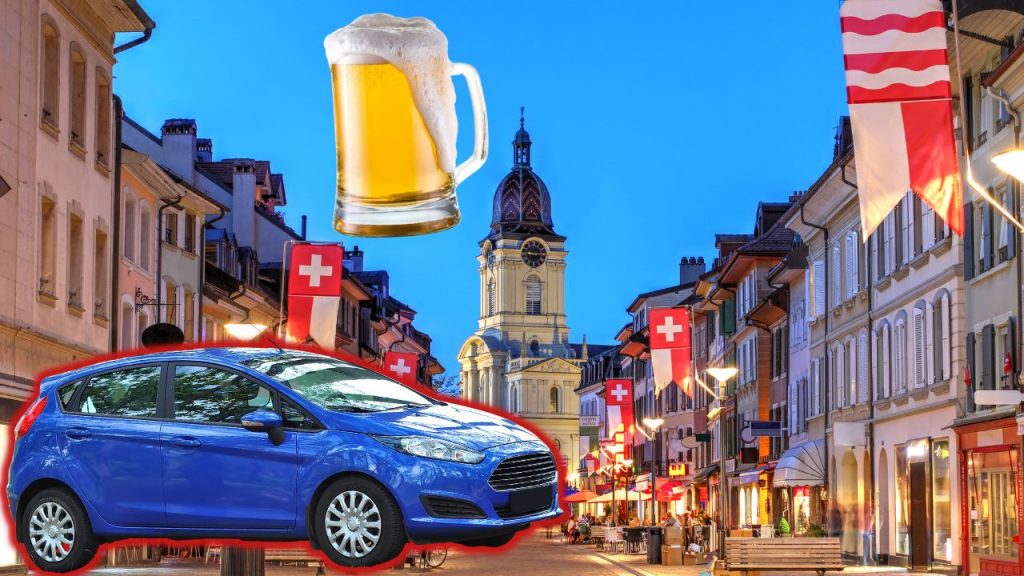
Driving under the influence of alcohol poses significant risks to both the driver and others on the road. In Switzerland, strict laws and penalties are in place to deter drink-driving. Fortunately, there are practical and convenient alternatives to driving yourself after consuming alcohol. Here are some recommendations to ensure you stay safe and avoid the legal and personal consequences of driving with a high blood alcohol concentration (BAC):
1. Utilize Taxi Services or Ride-Sharing Apps
Taking advantage of taxi services or ride-sharing apps is one of the most straightforward ways to avoid driving after drinking. In major Swiss cities, there are reliable and readily available options:
- In Zurich: Consider using Zuerich Taxi 24, a local taxi company known for its reliable service. Alternatively, ride-sharing apps like Uber offer a convenient way to get home safely with just a few taps on your smartphone.
- In Geneva: Taxi Ambassador is a reputable service that can ensure you reach your destination safely. Like in Zurich, Uber and other similar apps are available to provide a safe and hassle-free ride home.
These services can be a bit more costly than public transportation, but they are worth the investment in your safety and legal compliance.
2. Order a Designated Driver Service
If you find yourself in a situation where you’ve driven to a location but have consumed too much alcohol to drive back safely, designated driver services are an excellent solution. These services send a driver to your location to drive you and your car home. This way, you avoid leaving your vehicle unattended and potentially incurring parking fines or towing fees.
- In Zurich: Driveguard.ch offers a designated driver service that ensures both you and your car return home safely.
- In Geneva: Geneva Car Services provides similar services, catering to individuals who need a safe way to get both themselves and their vehicles back home after a night out.
To find a designated driver service in your area, a quick Google search for “designated driver service” followed by your city’s name should provide several options.
Sticking to Drink and Drive Laws in Switzerland: Sad Statistics
Switzerland saw a notable rise in road fatalities in 2020, with 227 deaths marking a 21.4% increase from the previous year, partly attributed to the surge in e-bike usage during the Covid-19 pandemic. This underscores the critical safety concerns around driving, especially under the influence of alcohol, which jeopardizes the safety of all road users.
Driving after consuming alcohol significantly impairs judgment and coordination, posing a severe risk. To mitigate this, individuals are urged to abstain from driving post-alcohol consumption, utilizing alternatives like taxis, designated driver services, or other public transportation options instead. Ensuring adherence to drunk driving laws and regularly checking your BAC, ideally with a reliable alcohol breathalyzer, is essential for safe driving practices.
For current information on drunk driving regulations in Switzerland and to stay informed about legal BAC limits, visiting Switzerland’s official website is advisable. It’s crucial for drivers to recognize the dangers of drunk driving and take proactive steps to prevent it, prioritizing the safety of themselves and others on the road.

